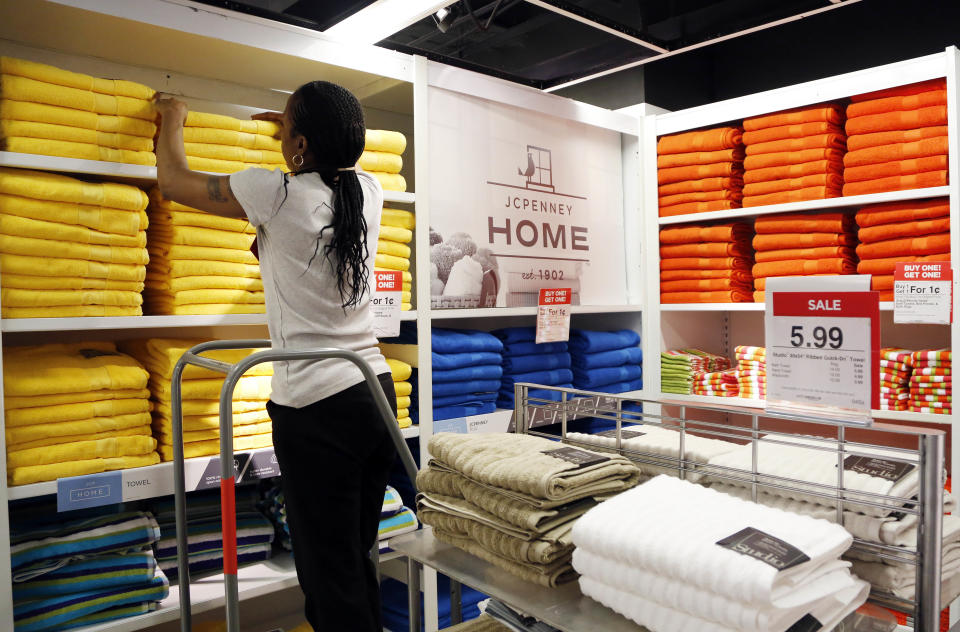Retail dwarfs coal, and yet Trump has said little about massive job losses
Retailers have announced over 60,000 job cuts in the first half of this year, according to consultant Challenger, Gray & Christmas.
But President Donald Trump hasn’t had much to say about the retail job losses, even though its labor force cuts just this year alone surpass the total number people employed in the entire coal industry, which Trump has pledged to save and grow.

The coal industry, which employs about 50,000, has received large support from Trump, including an executive order unwinding climate policies from the Obama administration and a decision to pull out of the Paris Climate Agreement.
But the industry has stagnated, including not adding any jobs in the last month, as shown in Friday’s jobs report.

Growing the coal industry is a high order for Trump, according to analysts who say the industry has been under extreme pressure for some time amid low natural gas prices and a shift to renewable energy.
While driven by different dynamics, retail (like coal) has become a victim of developments in globalization and technological advancement. Almost 500,000 layoffs have hit retailers since 2009, according to Challenger, with many of the layoffs due to fundamental industry shifts in the way consumers shop, particularly in the “e-commerce era” of Amazon (AMZN) where online spending is taking a larger share of consumer wallets, currently making up 8% of total US retail sales versus close to 3% a decade ago.
“We’ve tracked over 5,000 announced store closings this year, as retailers continue to focus operations online. It is likely we’ll continue to see cuts in the retail sector going forward,” according to the Challenger report.
And the stakes may be higher for retail than coal. Retail salespeople and cashiers represented the two largest job categories in the country as of 2016, with 4.5 million and 3.5 million workers, respectively, according to the Bureau of Labor Statistics. In fact, retail employment surpassed manufacturing sector employment 15 years ago, as shown in the chart below from advisory firm Cornerstone Capital Group.

In the first six months of this year, the 60,000 cuts in the retail industry represented a 40% jump from the same period last year. These include major layoff announcements like Macy’s (M) news in January it would shed 10,000 jobs and JC Penney’s (JCP) 6,000 layoffs announced the following month. This is significant during a period when the 220,000 job cuts across industries was down 30% year-over-year, according to Challenger.
Going forward, the prognosis could be even more grim. 30-50% of retail jobs could be at risk once full automation technology is employed, according to The World Economic Forum. This would imply a loss of 6 million jobs out of the current 16 million workers, a larger percentage reduction than experienced by the manufacturing industry, according to Cornerstone research.
“The impact of significant reductions in retail workers may mirror the impact of manufacturing job losses,” according to Cornerstone research.
And these pressures could extend beyond the core apparel industry, according to analysts. Grocery, one of the sectors originally considered shielded from online pressures, is under attack, particularly after Amazon’s announcement it will be acquiring Whole Foods.
Beyond secular industry shifts, pressures on retail are likely to be exacerbated by rising wages (from a tight labor market and minimum wage increases), according to analysts, as the companies have historically relied on cheap labor.
The employment crisis and the future
It’s unclear why Trump has been relatively silent on retail relative to coal. Some have pointed to demographic reasons: Coal mining jobs are concentrated geographically West Virginia, Kentucky, Pennsylvania, and Wyoming, where you will find Trump’s base.
For now, Trump continues to emphasize the coal sector in his speeches about jobs. But other industries, particularly retail, are undergoing significant transformation that is leading to considerable job losses. At some point, he’ll have to address this as these non-coal industries consist of voters too.
—
Nicole Sinclair is markets correspondent for Yahoo Finance.
Please also see:
The opioid crisis is hurting prospects for the US labor market
Fed sees easing financial conditions despite tightening
Tech stocks are not behaving like tech stocks
The US bond sell-off originated in Europe
The financial crisis is over

